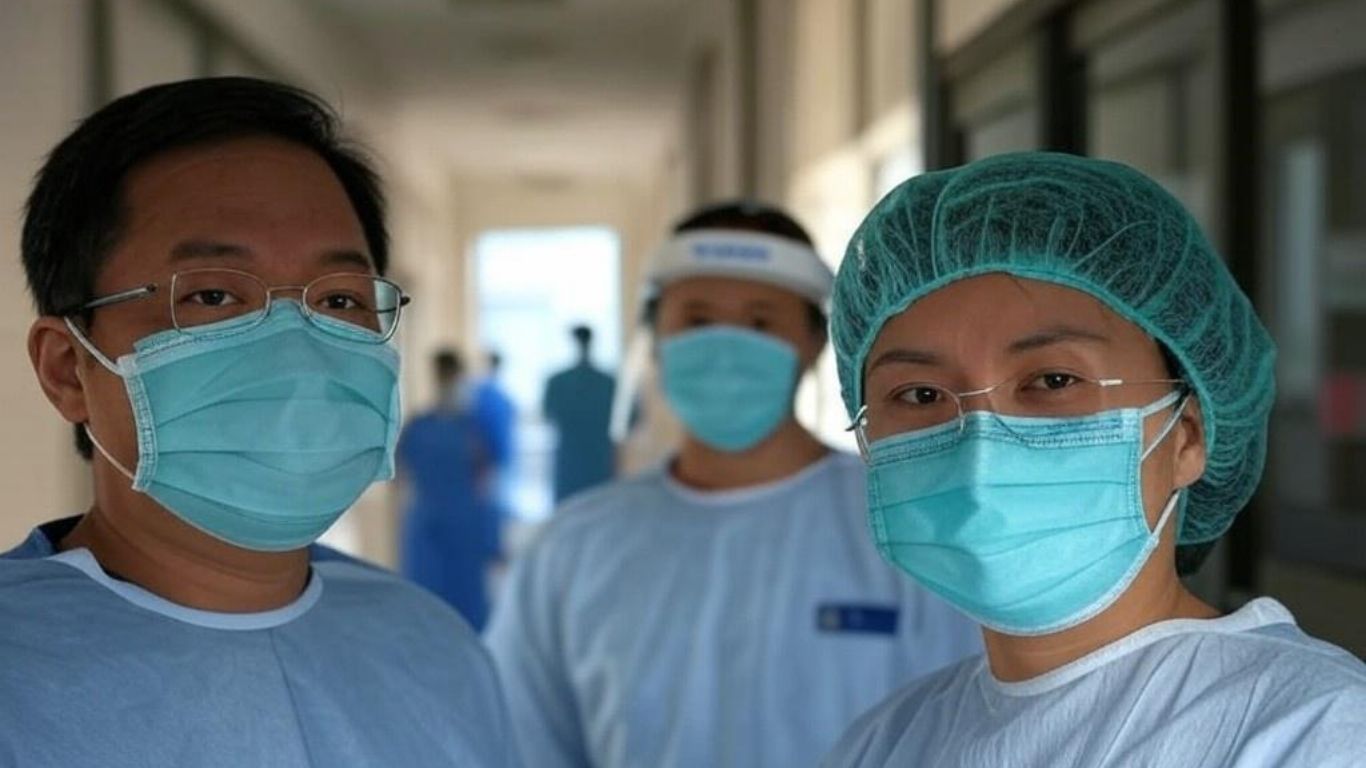China is currently witnessing a sharp rise in respiratory illnesses, including human metapneumovirus (HMPV), Influenza A, Mycoplasma pneumoniae, and lingering cases of COVID-19. Reports of overwhelmed hospitals and crematoriums have raised alarms, with health authorities and citizens sharing concerns over the severity of the situation.
Let’s explore these viruses, their dangers, and essential prevention tips to navigate this challenging time.
The Current Respiratory Health Crisis
1. Overwhelmed Healthcare Facilities
Social media posts and videos reveal overcrowded hospitals, particularly in children’s wards, as cases of pneumonia and “white lung” syndrome rise among youth. Authorities have acknowledged the surge in infections and are implementing monitoring systems for pneumonia of unknown origin to better address future outbreaks.
2. Predicted Rise in Cases
China’s disease control agency predicts a continued rise in respiratory infections during the winter months. Factors contributing to the surge include colder weather and a mix of viral and bacterial pathogens affecting vulnerable age groups, especially children under 14 in northern provinces.
Understanding the Viruses at Play
Influenza A
Overview
Influenza A is a subtype of the flu virus causing seasonal epidemics. It is highly contagious and can mutate rapidly, making it a recurring threat.
Dangers
- Ranges from mild flu-like symptoms to severe complications like pneumonia, bronchitis, and sinus infections.
- High-risk groups include young children, pregnant women, the elderly, and those with chronic conditions like asthma or diabetes.
Prevention Tips
- Annual Vaccination: Flu strains evolve, so yearly immunization is crucial.
- Hygiene Practices: Wash hands frequently, avoid touching your face, and maintain distance from infected individuals.
- Boost Immunity: A balanced diet, exercise, and adequate rest can help.
Human Metapneumovirus (HMPV)
Overview
HMPV is a respiratory virus that often mimics symptoms of the common cold or flu. It primarily affects children, the elderly, and those with weakened immune systems.
Dangers
- Can escalate to bronchitis or pneumonia, especially in children under five and older adults.
- No specific vaccine or antiviral treatment is available, heightening the importance of preventive measures.
Prevention Tips
- Hand Hygiene: Regularly wash hands with soap and water.
- Disinfection: Clean frequently touched surfaces.
- Limit Exposure: Avoid close contact with symptomatic individuals.
Mycoplasma Pneumoniae
Overview
This bacterium causes “walking pneumonia,” a milder form of pneumonia that spreads through respiratory droplets.
Dangers
- Symptoms include persistent cough, sore throat, fatigue, and fever.
- While typically mild, it can lead to severe complications in those with weakened immune systems or pre-existing conditions.
Prevention Tips
- Cough Etiquette: Cover your mouth and nose when coughing or sneezing.
- Stay Home When Unwell: Minimize the risk of spreading infection.
- Medical Consultation: Seek prompt medical advice if symptoms persist.
General Preventive Measures for Respiratory Illnesses
- Wear Masks
- Particularly in crowded or enclosed spaces to reduce exposure to airborne pathogens.
- Vaccination
- Stay updated on vaccines available for preventable respiratory illnesses.
- Healthy Lifestyle
- Include foods rich in vitamins and antioxidants to strengthen the immune system.
- Avoid Smoking
- Smoking damages the respiratory tract, increasing vulnerability to infections.
- Stay Hydrated
- Proper hydration supports immune function and overall recovery.
China’s Response to the Crisis
Proactive Measures
- The government has launched a pilot monitoring system for pneumonia of unknown origin to enhance detection and management of respiratory infections.
Public Awareness
- Authorities are encouraging adherence to hygiene practices, social distancing, and the use of protective gear to curb the spread of these illnesses.
The resurgence of respiratory infections in China underscores the importance of vigilance, public health preparedness, and personal hygiene. While influenza A, HMPV, and Mycoplasma pneumoniae pose significant health challenges, understanding these viruses and adopting preventive measures can safeguard individuals and communities.
Stay informed, prioritize vaccinations, and practice good hygiene to mitigate risks and ensure better health outcomes during this critical time.















